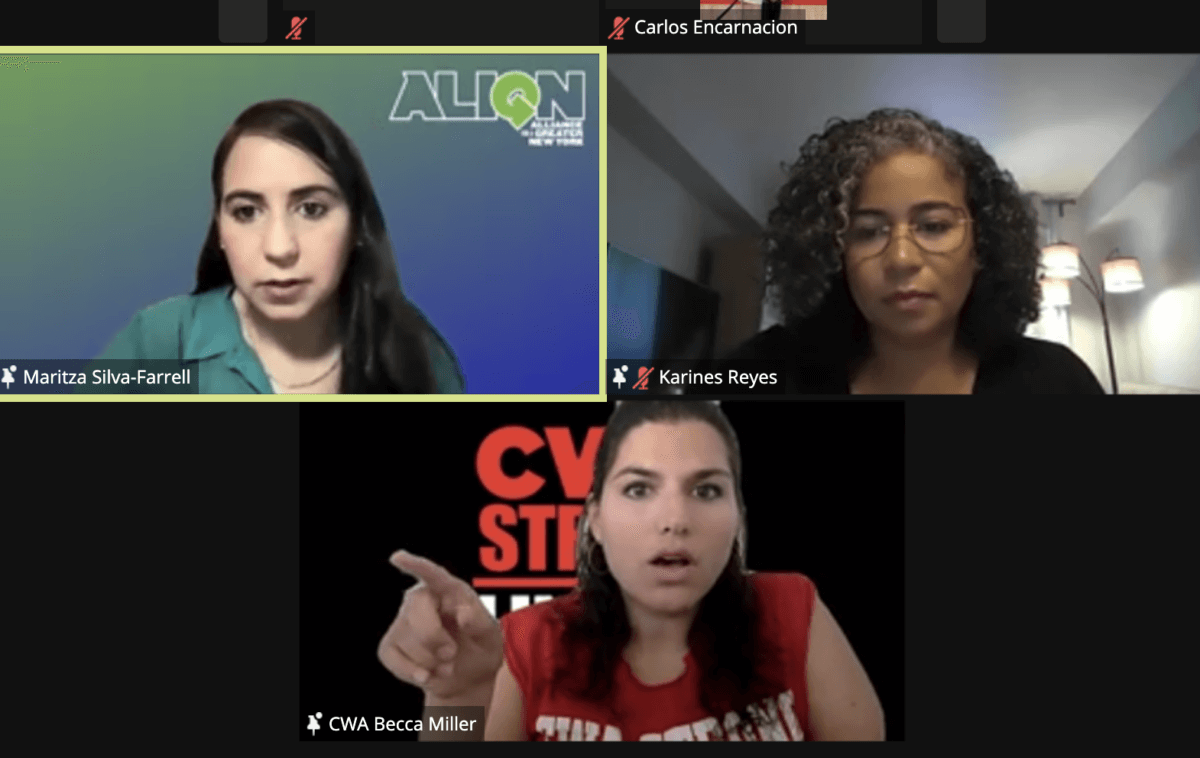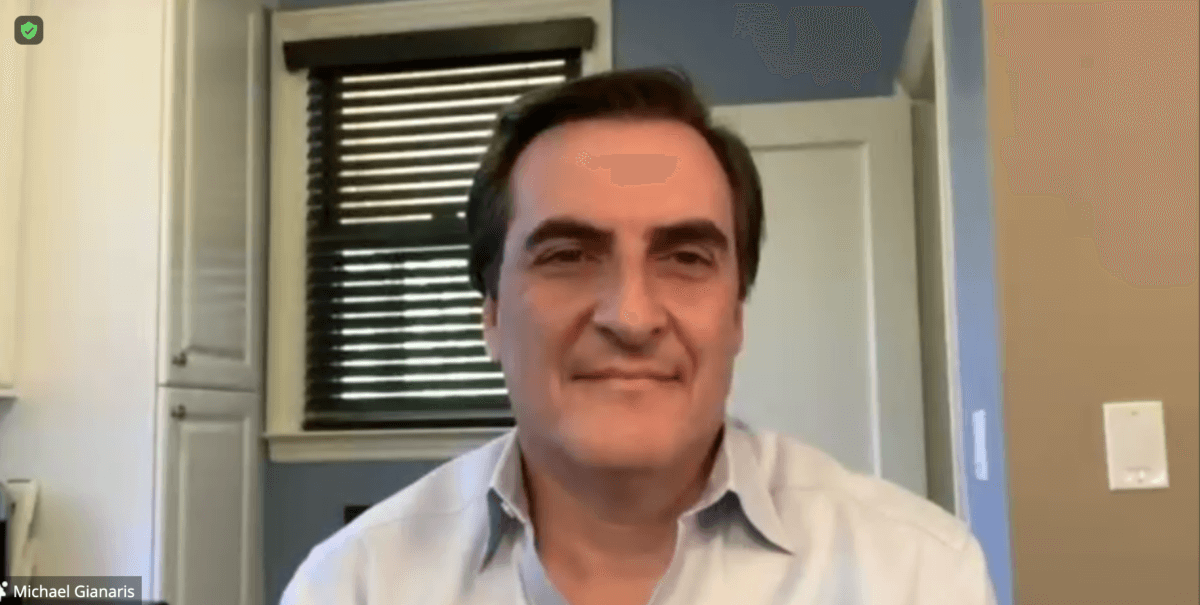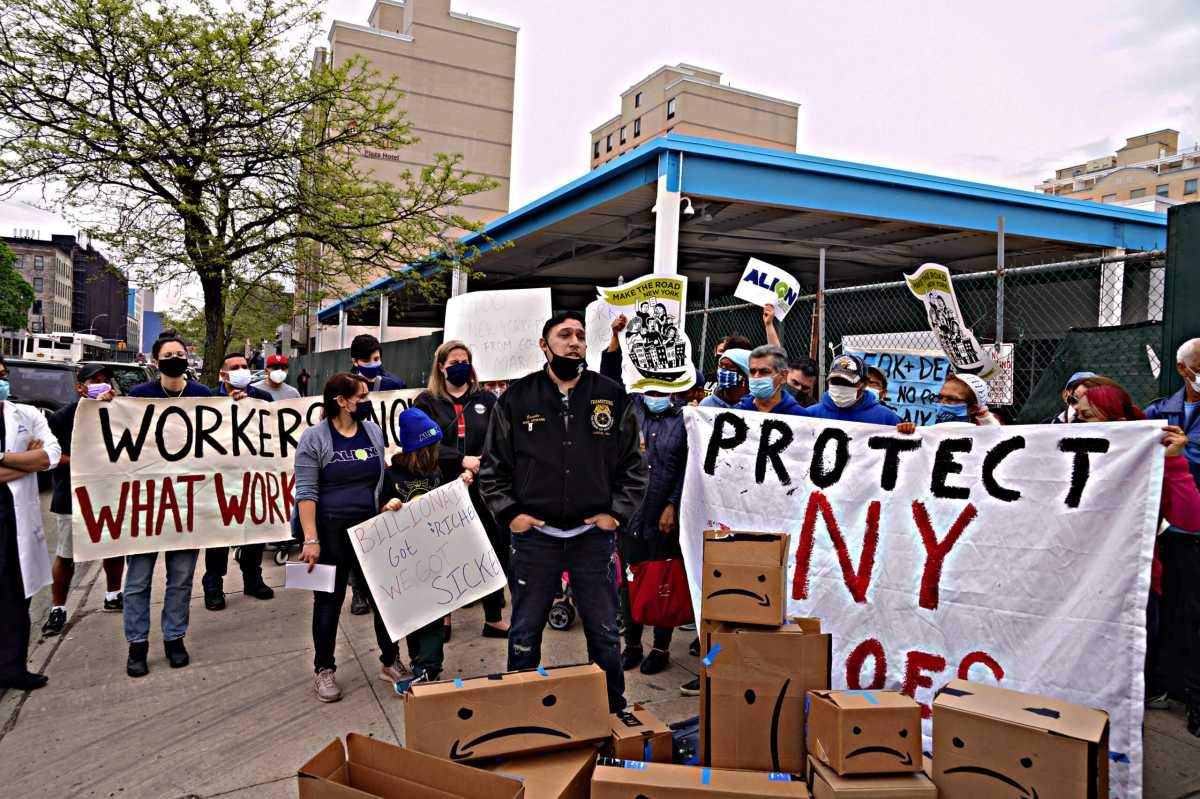Governor Andrew Cuomo signed the NY Hero Act, giving an array of essential workers in New York new on-the-job protections.
Essential workers from healthcare professionals to Amazon warehouse employees have been calling upon the head of state to sign a new bill for months now. From rallying outside of the Governor’s Midtown office to staging protests outside of businesses that have failed to provide staff with proper PPE and other safety protocols, advocates say this new law will help save lives.
“This is an incredible victory for the health and safety of immigrant, Black and brown essential workers who have put their lives on the line to protect our communities and keep our state going throughout the pandemic. As New York State begins to re-open, the NY HERO law will enforce adequate workplace COVID-19 protections and ensure a seat at the table for employees to improve safety conditions at work. We applaud Assemblymember Reyes and Senator Gianaris for leading the effort to enact this vital legislation that will help save workers’ lives, help reduce the spread of COVID-19 and create permanent workplace protections,” according to a statement from Make the Road NY, an immigration advocacy group..
The NY Hero Act would force employers to provide appropriate protections to members of their workforce against airborne pathogens, while also allowing those workers to have a say in said protections.

Senate Deputy Majority Leader Michael Gianaris and Assemblymember Karines Reyes sponsored the NY Hero Act, and during a Zoom rally celebrating its passing on May 6, shared that they couldn’t be prouder for creating the first law mandating protection for workers against airborne infectious diseases.
“Make no mistake, what we did with the passage of this law was save lives. There were a number of people that we know lost their lives because protections at their workplace were not in place over the last year, and now that is going to be required going forward,” Gianaris said.
The NY Hero act creates a new standard of protection and also requires employers to create a compliance committee, ensuring that the safety standards will be met. Once the bill is implemented and satisfies protocols, any violations found can be brought to the attention of the Department of Labor, which can result in civil penalties if litigation is brought on by the state, or if employees sue.
Gianaris believes that the NY Hero act not only serves as a protection for workers, but it also empowers them to monitor compliance and allows them to have a voice in their own safety.
Reyes, who is also a nurse, shared that her personal experience on the frontline made it integral for her to push the NY Hero act forward.
“For me as a nurse, it’s so important to have these protections in place because I know how it has been affecting our workers. How many lives we’ve lost because of this and because of this labor laws change when there is a monumental event. COVID has been a monumental event that has propelled our laws to change and to really modernize for the world we are living in today,” Reyes said.
For months, a multitude of advocacy organizations have been pushing for the enactment of this law without any amendments, yet while the Act was signed by Cuomo on May 5, it was also altered.
“The first-in-the-nation NY HERO Act directs State agencies to create clear, enforceable health and safety standards that private employers have to follow to keep their employees, and by extension their communities, safe. It also gives workers a voice in the process so employers aren’t the sole arbiters of workplace safety from disease. This is a historic step forward for working people and a preventative measure that will ensure we’re better prepared for the next public health crisis. I was proud to sign this bill into law and look forward to reviewing the new standards to protect workers and build a stronger New York,” Cuomo said in a statement.
Cuomo released a memo upon signing the bill which stated that while he agrees with the intent of the legislation, he said technical changes to the new law were forthcoming.
“In order to ensure that this bill is focused on safety while continuing the excellent progress the state has made, I have secured an agreement with the legislature to make technical changes to the bill, including giving the department of labor and employers more specific instruction in developing and implementing the workplace standards, including a clear timeline, and providing for an immediate requirement for employers to cure violations in order to better protect the safety of workers, and limit lengthy court litigations to those private rights of action, limited circumstances where employers are acting in bad faith and failing to cure deficiencies. On the basis of this agreement, I am pleased to sign this bill,” a portion of the memo read.
One of the most noted amendments was the inclusion of a grace period allowing businesses to amend any violations to this new law while also avoiding litigation. These additions allow business owners some leeway time of about 30 days to supply the safety gear before they are liable to have legal action taken against them (unless the employer is found to be acting in bad faith).
Legislators expect to pass the amendments in about a month when the session ends.
Lawsuit Reform Alliance of New York Executive Director Tom Stebbins shared his appreciation for Cuomo’s amendments in a statement.
“The last thing struggling small businesses need to worry about right now is getting swept up in a deluge of lawsuits. While we hoped that Governor Cuomo and the legislature would amend the NY HERO Act to remove the trial lawyer-friendly private right of action, we are happy to see the bill amended to include a grace period for businesses to comply before being sued,” Stebbins said. “Private rights of action do nothing to protect workers or help business owners and everything to line the pockets of the powerful personal injury trial lawyer lobby. Business owners should at least be allowed time – a cure period – to remedy violations before they are subjected to costly litigation. We’re encouraged by today’s amendment, which we hope will minimize the damage done and create a layer of protection against predatory and extortionate lawsuits.”

Gianaris is aware of the argument being made about small businesses struggling, but he also does not think that safety should be sacrificed for the employees and the customers.
“We are very conscious of the struggles of small businesses over the last year and we are doing a lot to help them in addition to whatever the federal government is doing. But public safety cannot be compromised, and the health of workers cannot be compromised,” Gianaris said.
While there have been changes made to the NY Hero Act, advocates still feel that the bill does exactly what it is intended to do—protect workers.
“I think that at the end of the day, we ended up with the strongest protection that we possibly could have. It’s an ambitious best standard in the country. I feel really good about the legislation we ended up with. At the end of the day, workers keep workers safe. The law gives us the tools we need to do it,” Rebecca Miller, Deputy Legislative & Political Director at CWA District 1 told amNewYork Metro.
Maritza Silva-Farrell, the Executive Director of ALIGN and a key leader of the NY Essential Workers Coalition that successfully fought for the NY HERO Act also chimed in adding, “What we are doing with this law is also making things right to things that were wrong. So many people sacrificed their lives, and so many lives could have been saved had employers been taking the precautions necessary ahead of it. This law would actually enforce it and ensure that happens. I feel extremely excited about the passage of the law and about the future of how the workforce will be seen now.”
































